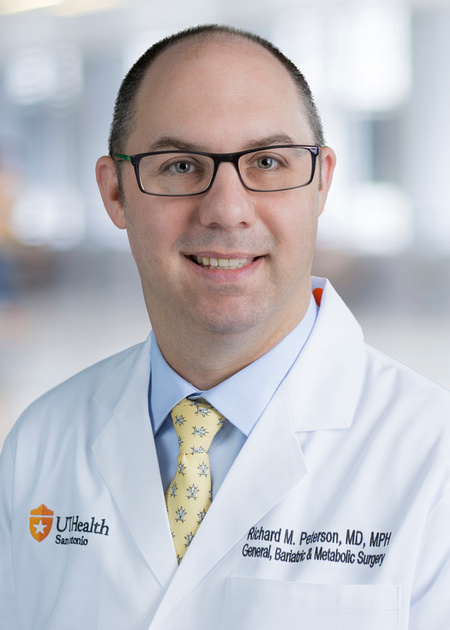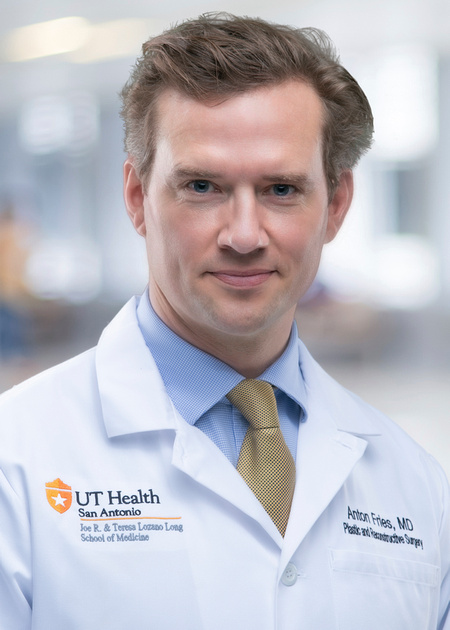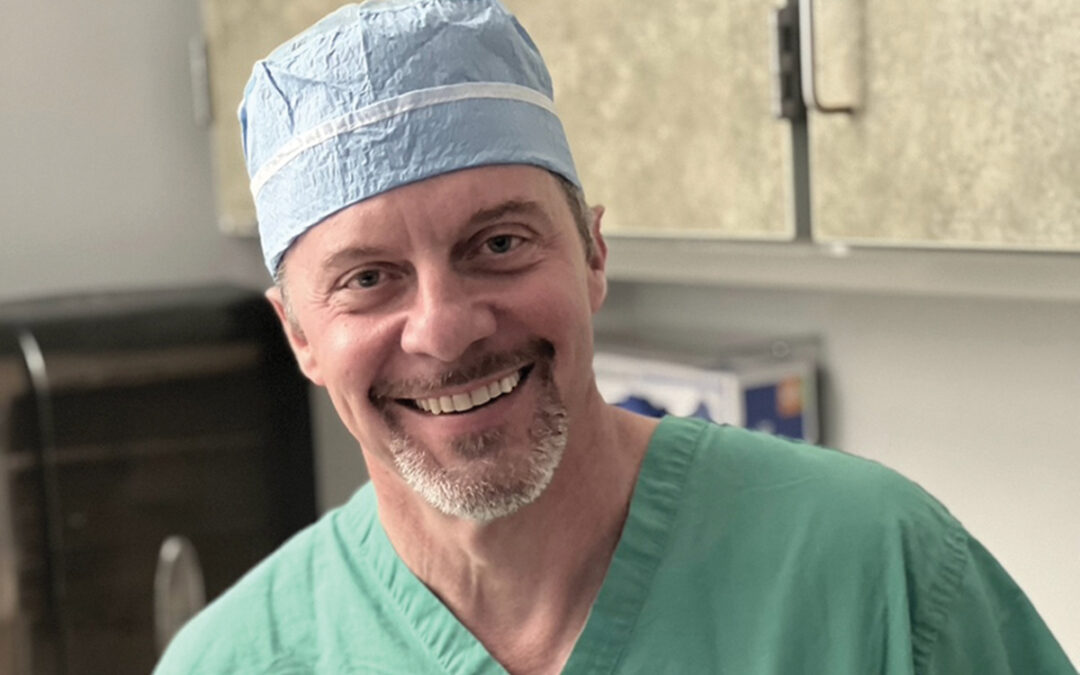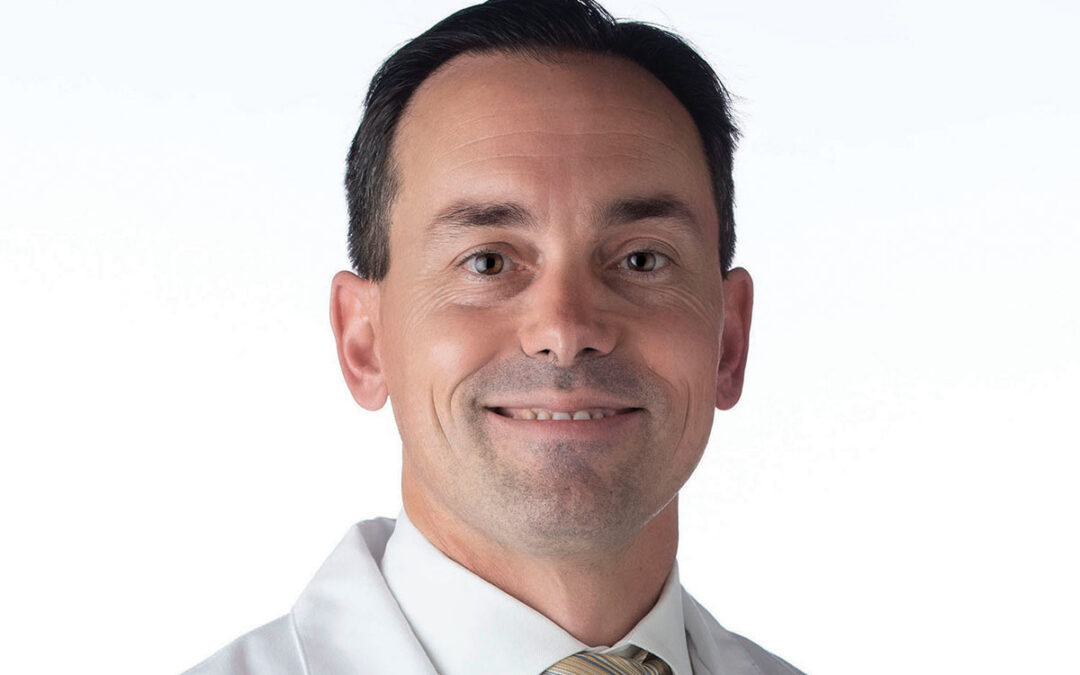Surgeons Combine Care to Transform Lives
By Blithe Wiley
In the United States, increasing numbers of people are turning to bariatric surgery as a safe, effective, and often permanent treatment for obesity. According to March 2021 data from the American Society for Metabolic and Bariatric Surgery, approximately 265,000 people underwent bariatric surgery in 2019, a 62% increase from 2011.
There are several types of bariatric and metabolic surgeries performed today. The three most common are sleeve gastrectomy, Roux-en-Y gastric bypass, and single anastomosis duodenal-Ileal bypass with sleeve gastrectomy, or SADI-S. Dr. Richard Peterson, a bariatric surgeon leading the weight loss surgery team at UT Health San Antonio, performs all three procedures.
“Obesity is an overarching inflammatory disease that can worsen a number of other medical conditions, including type II diabetes, heart disease, high blood pressure, and sleep apnea,” Peterson explained. “Bariatric surgery can improve or even reverse these conditions. Of these, the biggest health issue we address with these surgeries is type II diabetes.”
Although there are differences in the types of bariatric surgery performed, they all create a much smaller stomach. Roux-en-Y gastric bypass and the SADI-S procedures also reroute the intestine. All the surgeries are done robotically or laparoscopically using small incisions, which lowers the risk for complications and leads to shorter recovery times versus more invasive procedures.
“Bariatric surgery typically results in very dramatic weight loss,” Peterson said. “Also, with the bypass procedures, we can get most diabetic patients off their diabetes medications the day after surgery.”
Many health insurance companies cover bariatric surgery for anyone with a BMI of 40 or above and for people with a BMI of 35-39 if they have an additional health problem, such as type II diabetes, hypertension, or sleep apnea.
UT Health San Antonio offers supportive services for patients who undergo bariatric surgery.
“All of our patients complete counseling prior to their surgery,” Peterson said. “We also offer supportive care after surgery, including dietary and nutritional counseling, to help patients adjust to their new lifestyle. Support groups are also available for our patients to attend before and after their surgery.”
Dr. Peterson is passionate about raising awareness that obesity is first and foremost a disease.
“Obesity is truly a disease – it is not a lifestyle choice,” he said. “Its underlying causes include genetics and metabolism, which one can’t control, as well as diet and exercise. I want people to understand that obesity is not their fault and that they are not alone in addressing this disease.”
Many patients who lose a great deal of weight from bariatric surgery are left with large amounts of excess skin. Often, the best solution for this is cosmetic surgery. Dr. C. Anton Fries, a plastic surgeon at UT Health San Antonio, performs a variety of cosmetic surgeries for bariatric patients who have lost significant weight.
“For many of my patients, the excess skin is not simply a cosmetic issue, although of course, that is important,” Fries explained. “Excess skin can also cause medical issues, such as infections in the skin folds and back pain from carrying so much excess skin.”
Fries describes the main cosmetic procedures he performs for patients who’ve undergone weight loss surgery.
“We do tummy tucks, which are often circumferential, meaning it goes all around the waist. We also remove excess skin from the thighs and from the arms and perform breast and facelifts.”
Procedures can be performed in combination; however, Fries doesn’t like to do more than two of these procedures at the same time. It is not always appropriate, depending on a patient’s specific requirements. It is very important to give each area of the body time to heal and follow the appropriate aftercare, which may include the wearing of compression garments and scar treatments. “Typically, patients may resume most light activities after two weeks and most fully recover after six weeks.”
Most plastic surgeons want patients who’ve undergone bariatric surgery to maintain a healthy weight for at least a year before having skin removal surgery. This is to optimize the cosmetic outcome from the surgery.
Fries noted that patients who experience the greatest weight loss typically experience the most dramatic results from cosmetic surgery. “We’ve seen many patients who have had their lives transformed by bariatric surgery,” he said.
For many of Fries’ patients, the results of cosmetic surgery following weight loss are truly transformative in terms of their mental health and self-esteem. Fries noted that one of the biggest benefits of weight-loss cosmetic surgery is the boost in his patients’ self-confidence and the improvement in how they look and feel.
“Cosmetic surgery is the cherry on top of the cake in the bariatric weight loss process,” Fries said. “When we, the surgeons and our teams, see our patients at the end of this journey, it is so rewarding for us.”
Dr. Richard Peterson and Dr. C. Anton Fries are accepting new patients at UT Health San Antonio, where, every day, they are doing everything it takes to make lives better.
For more information, visit UTHealthCare.org or call to schedule a consultation:
Bariatric Surgery: 210-450-9200











0 Comments